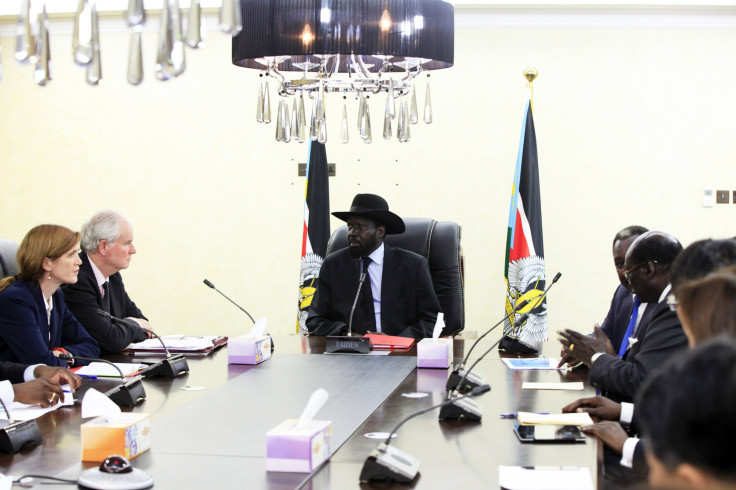UN Delegation To South Sudan Threatens Possible Sanctions On Warring Factions

A United Nations Security Council delegation, on a visit to South Sudan, said Tuesday that the organization is ready to impose sanctions on all warring factions if they continue to undermine the “peace, stability and security of the country,” the U.N. News Centre reported.
Samantha Power, the United States Ambassador to the U.N., said that the Security Council is “prepared to impose consequences if there continued to be people carrying out gross violations of human rights.”
“There is no military solution to what ails South Sudan,” she added. “It is important that all parties live by this message…the killing is continuing, notwithstanding the fact that a Cessation of Hostilities Agreement has been signed.”
Power, along with representatives from the 15-member Security Council, also met President Salva Kiir in the capital city of Juba on Tuesday. The delegation is scheduled to meet Riek Machar, leader of the rebel group named Sudanese People’s Liberation Movement in Opposition, on Wednesday.
“It was important that we visit South Sudan at this time to express our support to the ongoing IGAD (Inter-governmental Authority on Development) -led political dialogue and peace process and to tell all parties that they should implement agreements that they signed,” Eugene Gasana, former Security Council president and Rwanda's ambassador to the U.N., reportedly said.
The delegation also expressed alarm over reports of arms pouring into South Sudan, which could “set the stage for more battles when the dry season begins.”
At least 10,000 people have been killed and 1.5 million people have been forced to flee their homes since fighting erupted in South Sudan in December, pitting government forces loyal to Kiir against rebels commanded by former vice president Machar.
The conflict has also put over 4 million people at risk of hunger and starvation, and has resulted in what the U.N. termed “catastrophic food insecurity.”
Kiir and Machar signed a cease-fire accord on May 9 and agreed to form a transitional government by Aug. 10. However, peace talks in Addis Ababa, mediated by IGAD -- an eight-nation East African bloc -- have reportedly stalled because the two sides have failed to reach a consensus.
© Copyright IBTimes 2024. All rights reserved.






















